Super Tuesday is upon us, and the golden prize up for grabs is California. Former President Donald Trump will look to burnish his credentials with a dominant delegate victory, and President Joe Biden will also aim for a dominant show. But there are plenty of intriguing down-ballot races, not least the jungle primary for former Sen. Dianne Feinstein’s seat, as well as for several House seats. This series, Golden State Scramble, will look at all of the above and more. Part 1 is a preview of what to watch out for next Tuesday.
Voters in California will head to the polls Tuesday to pick their favorites in the primary election.
Up for grabs is president, governor, and more than 10 close congressional contests that could determine which party takes control of the House in November. There’s also a handful of competitive local races and ballot measures that could change the way prosecutors go after criminals, as well as one that would require welfare recipients to undergo drug screening or lose their assistance.
A marquee matchup between powerhouses Reps. Adam Schiff (D-CA) and Katie Porter (D-CA) for the late Sen. Dianne Feinstein’s seat is also being closely watched by the Democratic National Committee and major Democratic donors.
If both candidates make it out of California’s “jungle primary,” which advances the top two candidates regardless of party to the general election, it could lead to months of intraparty fighting over which candidate to support. There’s also an outside chance a Republican baseball legend with a messy personal life walks away with the win.
The Washington Examiner will be in California, breaking down all of the biggest news of the night.
Here are a few key races we have our eyes on:
President
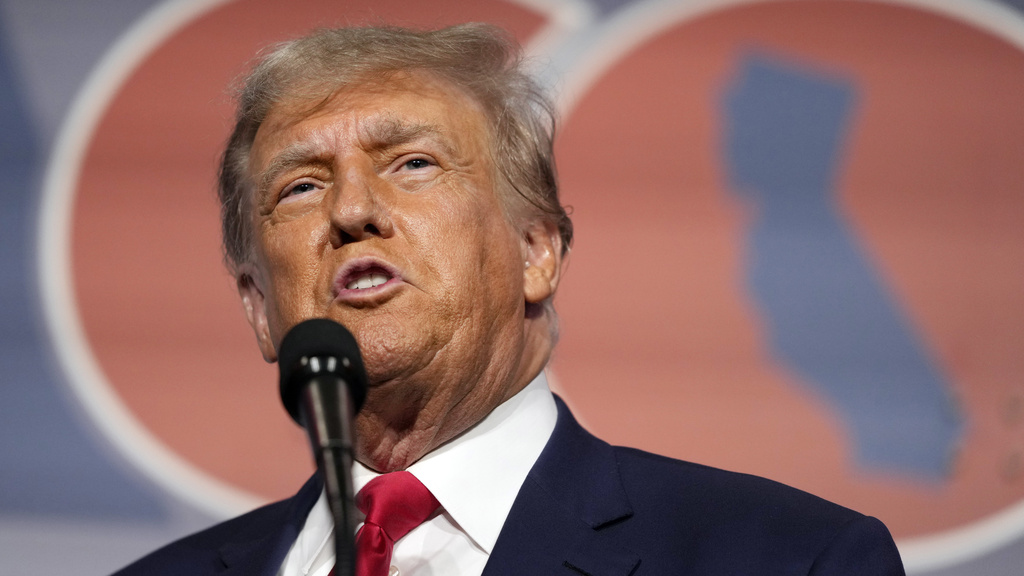
A Republican rule change for primary voting in California could help former President Donald Trump score a big win in record time on Tuesday.
The new rule allows any GOP candidate pulling in more than half of the primary votes to sweep all of the state’s 169 delegates in play. When the rule changes were proposed, the pool of Republican candidates was much more robust than it is now.
A University of Southern California report released in February gave Trump a 66% lead among the state’s Republican voters, outpacing former U.S. Ambassador to the United Nations Nikki Haley’s 28%. An average of surveys compiled by FiveThirtyEight also shows Trump at a massive advantage, with more than 73.1% of the Republican vote in California, compared to Haley’s 18.9%.
During a speech at the Conservative Political Action Conference two weeks ago, Trump took aim at California, slamming the state and its leadership under Gov. Gavin Newsom (D-CA) in a string of half-truths on everything from immigration to the drought. He again alleged rampant voter fraud in the state without providing proof and claimed the alleged fraud prevented him and other Republicans from winning the deep blue state.
Even with a win in the primaries in California, Trump has a very slim shot of winning the state in November. California has 54 votes in the Electoral College and has voted for Democratic presidential candidates since 1992.
President Joe Biden carried the state with 63.5% of the vote in 2020, the highest vote share of any candidate since 1936.
U.S. Senate
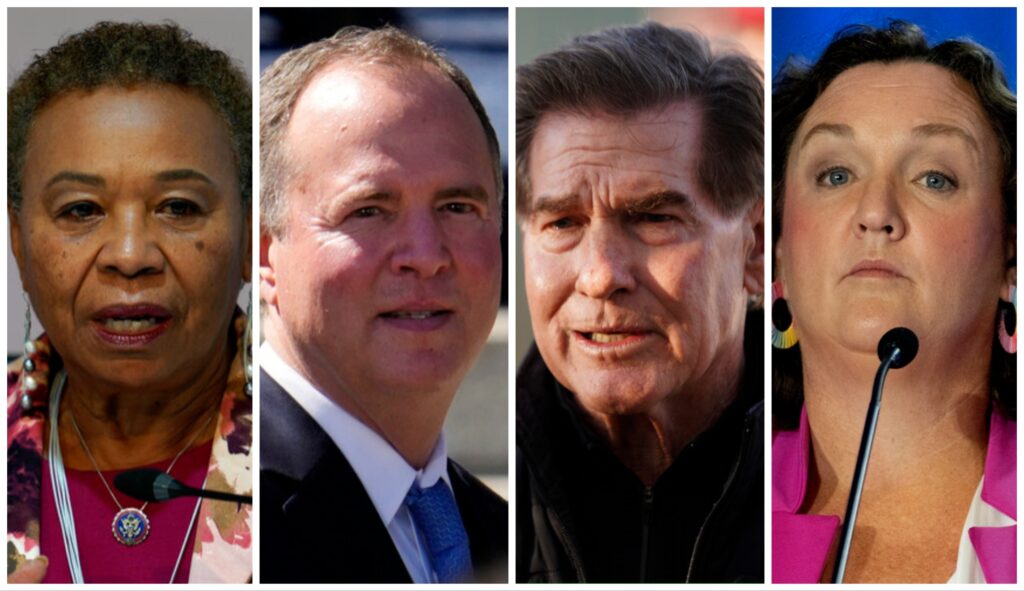
The race for Feinstein’s Senate seat has pitted the popular Schiff and Porter against one another.
They are two of 27 candidates in California’s crowded “jungle primary,” which advances the top two candidates regardless of party to duke it out in the general election.
If Schiff, who has outraised the entire field by millions of dollars, and Porter, who has made a name for herself on Capitol Hill for her unflinching questioning of powerful leaders, both make it through, it may lead to months of intraparty fighting and a campaign that could drain money from the DNC and its biggest financial donors.
Rep. Barbara Lee (D-CA), a longtime progressive lawmaker from Oakland, is also within striking distance, as is Republican Steve Garvey, a former first baseman for the Los Angeles Dodgers and San Diego Padres.
Garvey has run a very untraditional campaign and remained in the spotlight mostly because Schiff has spent $10 million in attack ads against him, labeling him “too conservative” for California. Garvey may be able to consolidate the Republican vote, as well as pick up a few votes from people on the fence. If Democratic voters are split between Schiff, Porter, and Lee, there’s a shot Garvey could pick up a win.
U.S. House of Representatives
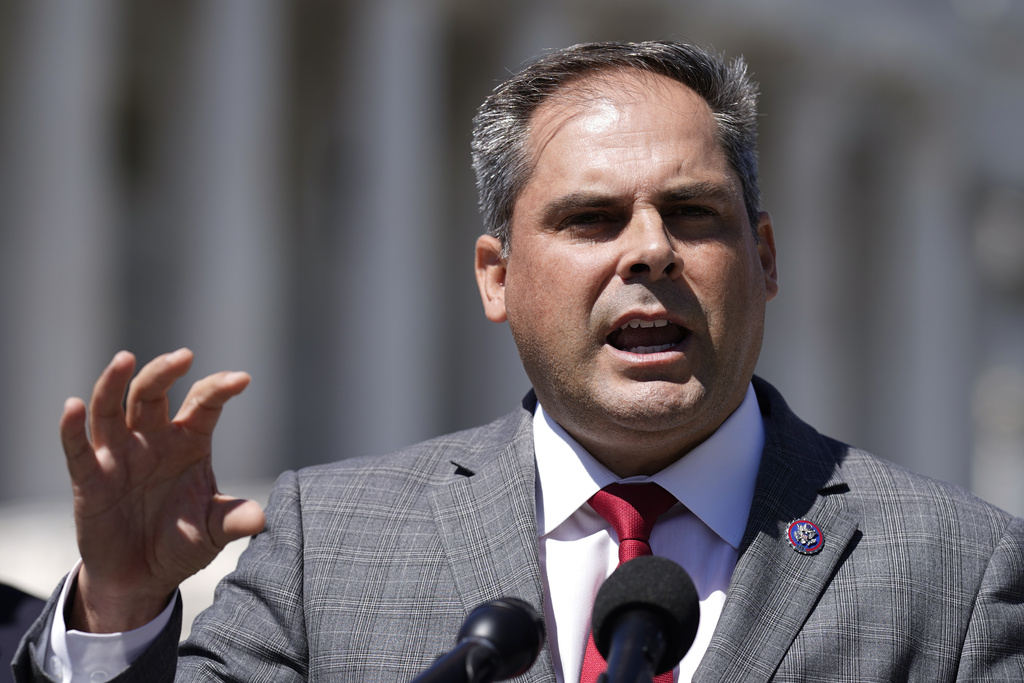
California will play a big role in determining which party is in control of the House of Representatives next year. Republicans have a seven-seat majority in the House.
Of the country’s 72 most competitive House races, 10 are in California and involve several of the same districts in which races were won by razor-thin margins two years ago, according to the CookPoliticalReport. Of the 10, four are from Orange County’s six congressional districts, including the seat vacated by Porter. Porter gave up her hard-fought flip in Orange County’s 47th District to run for the Senate.
With Porter out, the race in the largely coastal and affluent district has 10 candidates jockeying for the job. The top four candidates include Democratic state Sen. Dave Min, a former UC Irvine law professor; Republican business owner Scott Baugh, who is endorsed by the California Republican Party; Republican businessman Max Ukropina; and Democratic voting rights advocate Joanna Weiss.
Voters in northern Los Angeles County’s 27th District will decide if Rep. Mike Garcia (R-CA) will go on to serve a third term or be taken out by two Democratic candidates, George Whitesides, the former CEO of Virgin Galactic, and Steve Hill. Whitesides outraised Garcia in the last quarter of 2022, raising $771,000 compared to Garcia’s $562,000. Whitesides’s personal wealth and the ease with which he is willing to tap it for his campaign has become a line of attack for Republicans.
“George Whitesides is a radical far-left megadonor trying to purchase a congressional seat, and Santa Clarita Valley and Antelope Valley families will see right through him,” Ben Petersen, a spokesman for the National Republican Congressional Committee, told Roll Call in December.
Other tight races include District 41, in which there will likely be a rematch between Rep. Ken Calvert (R-CA) and Democratic candidate Will Rollins.
Rollins lost to Calvert by less than 5 points two years ago, but a new map and the addition of Palm Springs to the district have made it more friendly for Democrats.
L.A. district attorney
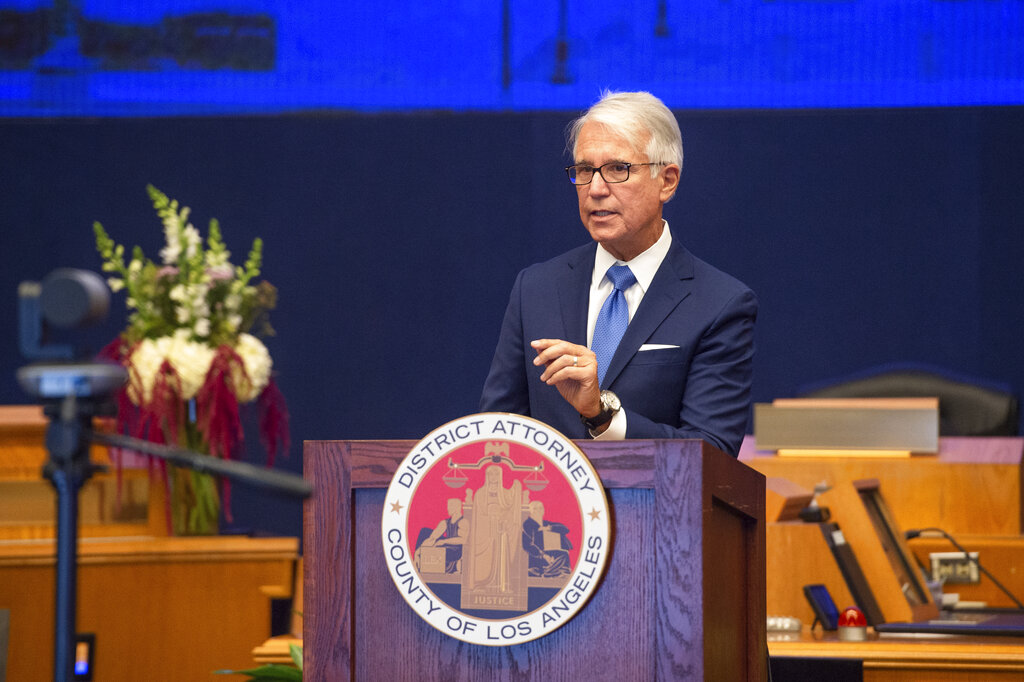
Angelenos will decide whether to keep Los Angeles District Attorney George Gascon, the embattled “godfather of progressive prosecutors,” on for another term or opt for one of the 11 candidates challenging him.
Gascon was elected in 2020.
On his first day in office, Gascon pushed through an ambitious agenda in which prosecutors could no longer seek the death penalty nor try teenage offenders as adults. He also announced several misdemeanor charges, including retail theft, trespassing, and simple drug possession, would no longer be prosecuted, leading to an overhaul of the criminal justice system that allowed lawbreakers to face less prison time, even in some cases involving violence.
Almost all of Gascon’s challengers said they would reverse his sweeping policy changes on their first day in office. Four candidates gunning for his gig — former federal prosecutor Nathan Hochman; Los Angeles County Deputy District Attorneys Jonathan Hatami and John McKinney; and David Milton, a retired Los Angeles County superior court judge — have said that if they were elected, they would do the “exact opposite of George Gascon.”
Voters have tried and failed twice to recall Gascon.
Proposition 1: Mental health treatment and housing for homeless
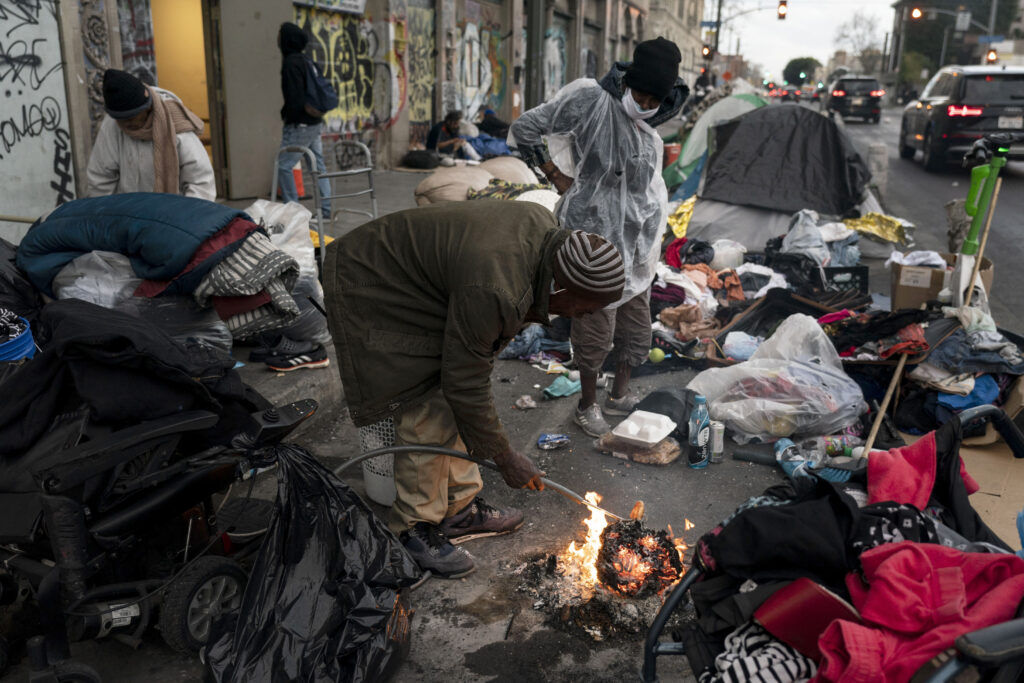
California voters will also be able to vote on Newsom’s Proposition 1, which is being billed as a way to address mental illness and homelessness.
The measure has two parts.
The first part is a state bond that would raise $6.4 billion to build treatment facilities and affordable housing. The second is an amendment to the Mental Health Services Act, a 2004 ballot measure that taxed annual income over $1 million by 1%. The amendment would reallocate proceeds to deserving counties so they can spend more on housing and help people dealing with severe addiction and mental illness.
“These reforms, and this new investment in behavioral health housing, will help California make good on promises made decades ago,” Newsom said.
California has the most acute homelessness epidemic in the nation, and mental health plays a huge part. Supporters of Proposition 1 argue the state’s mental health crisis demands that more money be spent on helping people with severe problems. Critics claim redirecting money for severe cases would come at the expense of prevention services.
Proposition F: Drug screening for welfare recipients
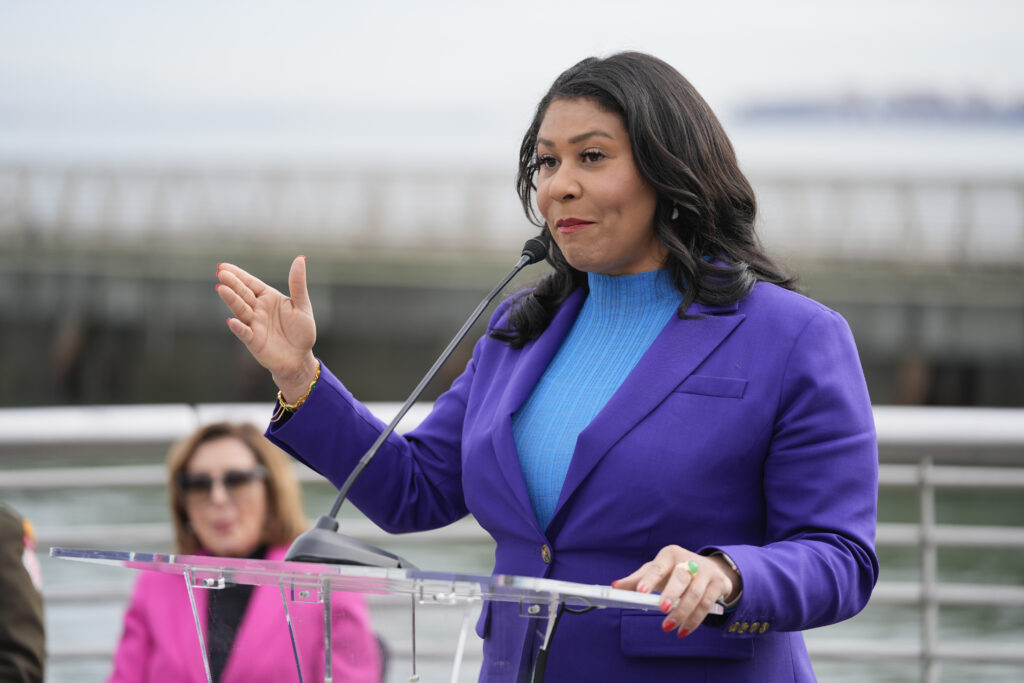
San Francisco Mayor London Breed’s Proposition F will be on the March 5 ballot.
Voters will get to decide if welfare recipients should undergo drug screening or lose government assistance.
San Francisco has experienced a record number of overdose deaths, and Breed has pitched her proposal as something that would “create more accountability and help get people to accept the treatment and services they need.”
CLICK HERE FOR MORE FROM THE WASHINGTON EXAMINER
While Breed is not on the primary ballot, she will be running for reelection in November, and her approval ratings are at an all-time low. The success or failure of Proposition F could determine whether Breed’s campaign stays the course or pivots in its messaging to San Francisco voters.
A recent poll commissioned by the San Francisco Chronicle has her at “serious risk” of losing her reelection bid.
